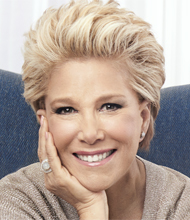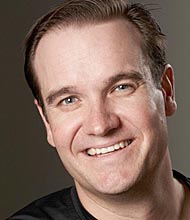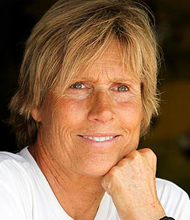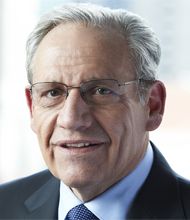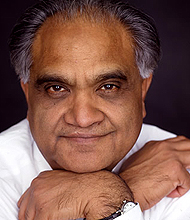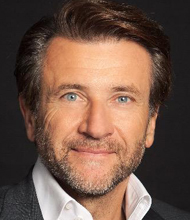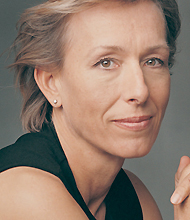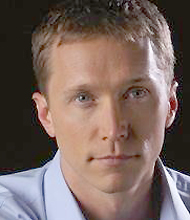Economic OutlookGlobal AffairsGlobalizationInternational RelationsPolitics / GovernmentTED Talk Speaker
| TRAVELS FROM |
|
SPEAKING FEE RANGE ** Please note that while this speaker’s specific speaking fee falls within the range posted above (for Continental U.S. based events), fees are subject to change. For current fee information or international event fees (which are generally 50-75% more than U.S based event fees), please contact us. $30,000 to $50,000 |
|
BOOK IAN BREMMER speakers@coreagency.com |
Economic OutlookGlobal AffairsGlobalizationInternational RelationsPolitics / GovernmentTED Talk Speaker
| TRAVELS FROM |
|
SPEAKING FEE RANGE* $30,000 to $50,000 |
|
Book Ian Bremmer speakers@coreagency.com |
- As the leading global political risk consultant, Ian Bremmer has decades of experience teaching and coaching leaders on the ways political risk intersects with financial markets around the world.
- Demonstrating a keen understanding of the global situation and emerging market countries, he drills down to the key geopolitical issues impacting economics in the world today.
- Bremmer leaves his audience wanting more as he outlines how shifting geopolitics and world economics affect markets and companies across the globe.
- He is the “guru” of political risk, founder of the Eurasia Group, foreign affairs columnist for Time, and author of nine books about the intersection of politics and financial markets.
Ian Bremmer focuses on the intersection of politics and markets. He is credited with bringing the science of politics to the financial markets, and establishing political risk as an academic discipline. In 2001, he created the Global Political Risk Index (GPRI)—the first of its kind—for Wall Street. As president and founder of Eurasia Group, he and his team are the leading global political risk research and consulting firm in the world.
The Wall Street Journal and The Economist referred to Bremmer as the "guru" of the field of political risk. As the author of nine books, he is responsible for coining several words and phrases now commonly used in regards to financial/geopolitics, including the “J-Curve,” “G-Zero” and “weaponization of finance.” His latest book Three Choices for America's Role in the World was released in May 2015.
Established in 1998, today the Eurasia Group has nine offices around the world, as well as a network of experts in 90 countries. As the firm’s president, Bremmer advises executives, money managers, diplomats and heads of state on how political developments and national security dynamics move markets and shape investments across the globe.
Bremmer got his B.A. in International Relations, magna cum laude, at Tulane University and an MA in Political Science at Stanford University. He received his PhD in Political Science from Stanford University in 1994, and was the youngest national fellow at the Hoover Institution. In 2007, Bremmer was named a Young Global Leader of the World Economic Forum, where he is the founding chairman of the Global Agenda Council on Geopolitical Risk. He is the Harold J. Newman Distinguished Fellow in Geopolitics at the Asia Society Policy Institute and serves on the President’s Council of the Near East Foundation, the Leadership Council for Concordia and the Board of Trustees of Intelligence Squared.
He is the foreign affairs columnist and editor-at-large for Time magazine, a regular columnist for Reuters and the Financial Times A-List, and has written hundreds of articles for well-known publications such as the Washington Post, New York Times, Wall Street Journal, Harvard Business Review and Foreign Affairs. He appears regularly on CNBC, Fox, Bloomberg, CNN, the BBC, NPR, and other networks. Bremmer grew up in Boston and lives in New York and Washington.
As the creator of Wall Street's first global political risk index and political risk management advisor to thousands across the globe, Ian Bremmer is one of the most sought-after speakers on global politics and their impact on the economic landscape.
With today's unstable global environment, his concept of the "G-Zero world"-the idea that no country is willing or able to set the international agenda-has become a huge topic of interest for his audiences.
His speeches center around this lack of global leadership and how it undermines peace in Asia and the Middle East, stunts global economic growth, reverses the impact of climate change, gets in the way of feeding growing populations, and endangers the most basic necessities for the world's population. His keynotes address how the impact of these issues are being felt across the world.
The Rise of the Different: Why the Global Order Doesn’t Work and What We Can Do About It
After World War II, the United States emerged as the most powerful state in history, and it set out to create a world order in its own image. The U.S. shaped a global system that served U.S. interests and those of anyone who accepted American preferences. Since then, the world has fundamentally changed. Emerging market nations are much poorer, less diplomatically experienced, and have different priorities and political systems. Perhaps most importantly, they are inherently less stable.
Bremmer talks with audiences about what this means for the global order. With the rise of so many players who cannot be ignored—and aren’t ready to agree—conflict and a lack of leadership will increasingly be the norm. At this presentation, audiences will learn about:
Every Nation for Itself: Winners and Losers in a G-Zero World
The need for international leadership has never been greater. Leaders have the leverage to coordinate multinational responses to transnational problems, and the wealth and power to persuade governments to take actions they otherwise wouldn’t take. They pick up the checks that others can’t afford and provide services no one else will pay for. Bremmer predicts that in years to come, there will be no global leadership because there is no single country or bloc of countries with the political and economic muscle to drive an international agenda. A world without leaders will undermine the U.S.’s ability to keep peace in Asia and the Middle East, grow the global economy, reverse the impact of climate change, feed growing populations, and protect the most basic of all necessities—air, food, and water. At this presentation, audiences will learn about:
The End of the Free Market: Who Wins the War Between States and Corporations?
A generation after communism’s collapse, the future of free market capitalism isn't what it used to be. Public wealth, investment, and ownership have made a stunning comeback. The political leadership in China, Russia, the Arab monarchies in the Persian Gulf, and other authoritarian states have invented a new system: state capitalism. According to Bremmer, they’re using markets to create wealth that can be directed toward achieving political goals. Governments now dominate key domestic economic sectors; the oil companies they own control three-quarters of the world’s crude oil reserves; they use state-owned companies to manipulate entire economic sectors and industries; and they own enormous investment funds that have become vitally important sources of capital for Western governments and banks weakened by financial crisis. An expert on the impact of politics on market performance, Bremmer illustrates how the rise of state capitalism threatens relationships among nations and the future of the global economy. At this presentation, audiences will learn about:
Managing Risk in an Unstable World
To navigate globalization's choppy waters, every business leader analyzes economic risk when considering overseas investments or looking at market exposure. But do you look beyond data about per-capita income or economic growth to assess the political risk of doing business in specific countries? If not, you may get blindsided when political forces shape markets in unexpected ways—from European accession in Turkey, social unrest in India, or protectionist legislation on China.
Acclaimed political analyst and entrepreneur Ian Bremmer explains that by blending political and economic risk analysis, you can make savvier investment decisions and seize valuable opportunities around the globe while avoiding danger zones. At this presentation, audiences will learn:
China, India, and Beyond: The Opportunities and Pitfalls of Asian Growth
China is a colossal world force, and business leaders can't get enough of the promised riches of Asia. But does unprecedented growth mean your company will benefit? Bremmer explains the dangers of Asian growth for global investors seeking to build a presence in international markets, for companies seeking to sell their products there, and for the global markets more broadly. In this speech, audiences will learn:
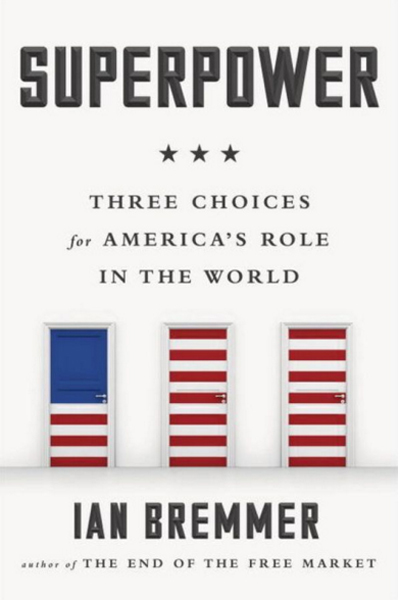
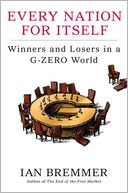
Every Nation for Itself: Winners and Loser in a G-Zero World
A national bestseller, it was named “Book of the Year” by the Foreign Policy Association, and selected for the Financial Times’ “Pick of the crop” list.
Forget the G-7 and the G-20; we are entering a leaderless "G- Zero" era—with profound implications for every country and corporation.
The world power structure is facing a vacuum at the top. With the unifying urgency of the financial crisis behind us, the diverse political and economic values of the G-20 are curtailing the world's most powerful governments' ability to mediate growing global challenges. There is no viable alternative group to take its place.
The United States lacks the resources and the political will to continue as the primary provider of global public goods. China has no interest in accepting the burdens of international leadership. Europe is occupied with saving the eurozone, and Japan is tied down with its own problems. Emerging powers such as Brazil, India, and Russia are too focused on domestic development to welcome new responsibilities abroad.
The result is a G-Zero world in which no single country or bloc has the political or economic leverage—or the desire—to drive a truly international agenda. Ian Bremmer explains how this will lead to extended and intensified conflict over vitally important issues, such as international economic coordination, financial regulatory reform, trade policy, and climate change.
We are facing a time of profound uncertainty. Bremmer shows who will benefit, who will suffer, and why this increased state of conflict is both inevitable and unsustainable.
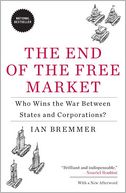
The End of the Free Market: Who Wins the War Between States and Corporations?
A number of authoritarian governments, drawn to the economic power of capitalism but wary of uncontrolled free markets, have invented something new: state capitalism. In this system, governments use markets to create wealth that can be directed as political officials see fit.
As an expert on the intersection between economics and politics, Ian Bremmer is uniquely qualified to illustrate the rise of state capitalism and its long-term threat to the global economy. The main characters in this story are the men who rule China, Russia, and the Arab monarchies of the Persian Gulf, but their successes are attracting imitators across much of the developing world.
This guide to the next big trend includes useful insights for investors, business leaders, policymakers, and anyone else who wants to understand major emerging changes in international politics and the global economy.
"An essential guide to the future of the world economy."
David Smick, author of The World is Curved
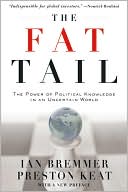
The Fat Tail: The Power of Political Knowledge in an Uncertain World (with a New Preface)
Featuring a new preface that addresses the fallout from the 2008 financial crisis, The Fat Tail is the first book to both identify the wide range of political risks that global firms face and show how to manage them effectively. Written by two of the world's leading figures in political risk management, it reveals that while the world remains exceedingly risky for businesses, it is by no means incomprehensible.
Applying the lessons of world history, Ian Bremmer and Preston Keat survey a vast range of contemporary risk scenarios, from stable markets like the United States, where politically driven regulation can dramatically affect business, to more precarious places like Iran, Russia, Mexico, and Nigeria, where private property is less secure and energy politics sparks constant volatility. The book covers a wide array of political risks—great power rivalries, terrorist groups, government takeovers, internal strife, and even the "black swans" that defy prediction.
Featuring a wealth of unique tools and concepts to help corporations and policy makers understand political risk, The Fat Tail shows when and how political risk analysis works—and when it does not.

 VIDEO
VIDEO PROGRAMS
PROGRAMS BOOKS
BOOKS




